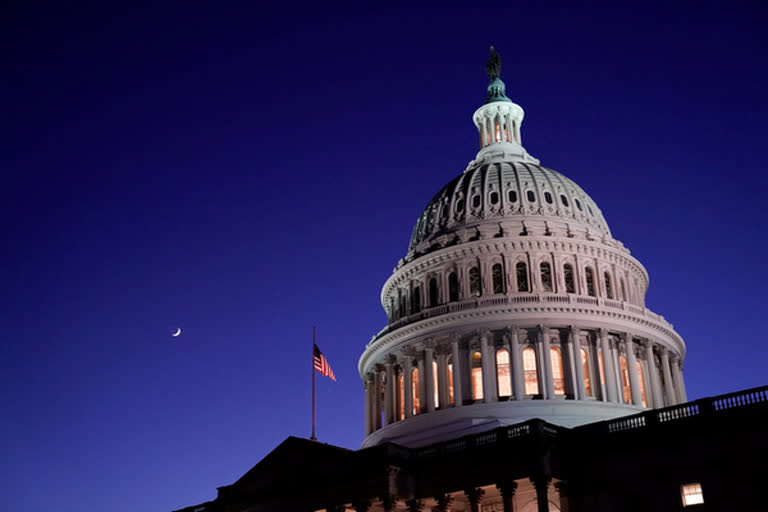Washington: A Congress riven along party lines approved a landmark $1.9 trillion COVID-19 relief bill Wednesday, as President Joe Biden and Democrats claimed a triumph on a bill that marshals the government's spending might against twin pandemic and economic crises that have upended a nation.
The House gave final congressional approval to the sweeping package by a near party line 220-211 vote precisely seven weeks after Biden entered the White House and four days after the Senate passed the bill without a single Republican vote. GOP lawmakers opposed the package as bloated, crammed with liberal policies and heedless of signs the crises are easing.
Most noticeable to many Americans are provisions to provide up to $1,400 direct payments this year to most adults and extend $300 per week emergency unemployment benefits into early September. But the legislation goes far beyond that.
The measure addresses Democrats' campaign promises and Biden's top initial priority of easing a one-two punch that first hit the country a year ago. Since then, many Americans have been relegated to hermit-like lifestyles in their homes to avoid a disease that's killed over 525,000 people — about the population of Wichita, Kansas — and plunged the economy to its deepest depths since the Great Depression.
“Today we have a decision to make of tremendous consequence,” said House Speaker Nancy Pelosi, D-Calif., “a decision that will make a difference for millions of Americans, saving lives and livelihoods.”
For Biden and Democrats, the bill is essentially a canvas on which they've painted their core beliefs — that government programs can be a benefit, not a bane, to millions of people and that spending huge sums on such efforts can be a cure, not a curse. The measure so closely tracks Democrats' priorities that several rank it with the top achievements of their careers, and despite their slender congressional majorities there was never real suspense over its fate.
They were also empowered by three dynamics: their unfettered control of the White House and Congress, polls showing robust support for Biden's approach and a moment when most voters care little that the national debt is soaring toward a stratospheric $22 trillion. Neither party seems much troubled by surging red ink, either, except when the other is using it to finance its priorities, be they Democratic spending or GOP tax cuts.
Also read:US-China to meet at senior level in Alaska next week
Republicans noted that they've overwhelmingly supported five previous relief bills that Congress has approved since the pandemic struck a year ago, when divided government under then-President Donald Trump forced the parties to negotiate. They said this one solely reflected Democratic goals by setting aside money for family planning programs and federal workers who take leave to cope with COVID-19 and failing to require that shuttered schools accepting aid reopen their doors.
